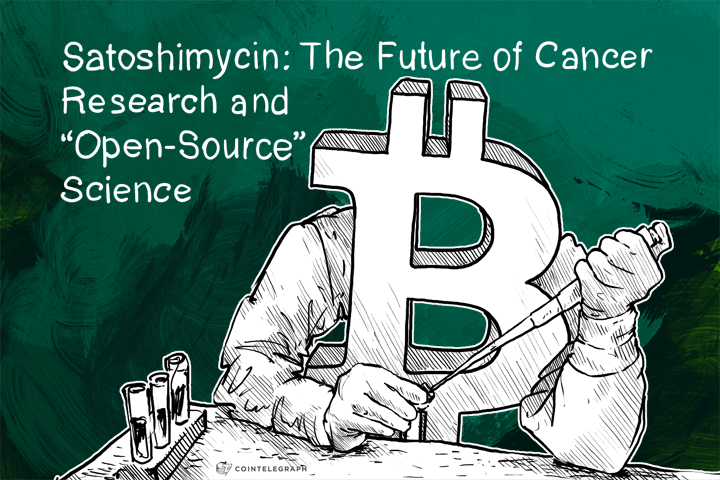Bitcoin is helping fuel a scientific crowdfunding site with a non-traditional fundraising bent. Indysci, as the company is called, funds open-source scientific projects that anyone can look at, modify, or use. The first project on the agenda, dubbed Project Marilyn, will pour donations into research for an open-source cure for cancer.
Sounds interesting? We've hardly scratched the surface.
The nonprofit organization encourages Bitcoin donations to fuel this commendable scientific effort. It will name a compound variant “satoshimycin” after Bitcoin creator Satoshi Nakamoto if it garners at least 10 BTC in donations (which is roughly equivalent to $3,800 right now). So far, the campaign has raked in $17,000 of the $50,000 goal—and 7.38 BTC.

The proceeds from the Project Marilyn campaign will fund an experiment called xenograft, one more rung on the ladder towards developing the anti-cancer compound 9DS. The history is an interesting, long-winded one. As Wired reports, Professor Barbara Gerratana discovered a way that 9DS could be used without pernicious side-effects, but left it unfinished, dangling in the public domain. Basically, the information currently available is free for anyone to use—or expand upon. With Indysci, chemist Isaac Yonemoto picked up the project to “liberate pharmaceuticals” and is riding the open source model further along. The website reads:
“It's time to develop a patent-free anticancer drug for the 21st century. Releasing without a patent means expanded access to drugs in countries that can't afford extensive licensing and export agreements.”
In other words, this entails a non-patentable product that anyone can produce, not just the company that created it. But Indysci.org hopes to go far beyond this unique project. Project Marilyn is the first, but if this crowdfunding effort is successful, there may be additional crowdfunded experiments in the cards. And Bitcoin could play a role throughout. In general, the new organization is dedicated to supporting non-traditional basic and applied scientific research. As the website describes:
“Our focus is to fund and conduct socially beneficial scientific projects that challenge components of the traditional 'government-subsidy to academia to industry' paradigm of science policy.”
Could crowdfunding shake up the traditional model of scientific funding? So far, that model hasn't been terribly popular, or lucrative, for scientists. But it has offered new opportunities for a few scientists funding smaller projects. It's an intriguing long-term possibility and Indysci reminds us of something else: Maybe Bitcoin will even play a role in scientific crowdfunding as it expands to live up to its global potential.



